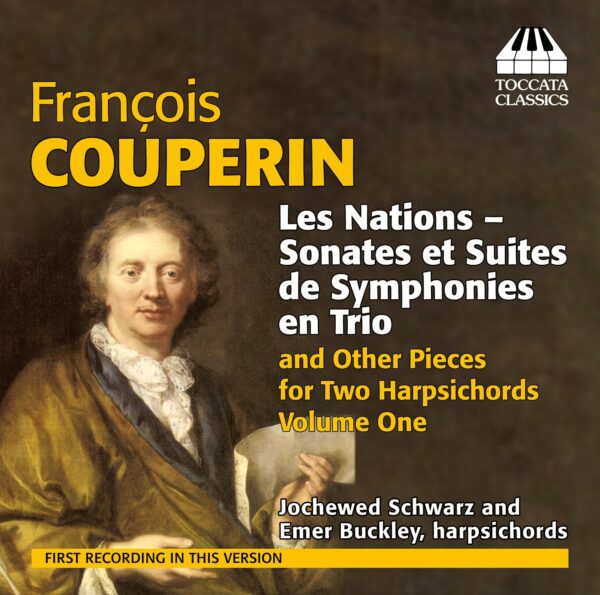Jan Ladislav Dussek: Piano Music
The compositions of the Czech-born Jan Ladislav Dussek (1760-1812) show the Classical style gradually taking on the expressive characteristics of Romanticism, foreshadowing composers like Beethoven, Chopin, Schubert and Schumann. The Douze Études mélodiques (also published as Leçons progressives) offer a sort of musical United Nations of the day, its Polish, Russian, Scottish, Spanish, Turkish and other national elements intended to appeal to the contemporary fashion for the exotic. His F major Fantaisie is in effect an eight-movement suite, presenting an array of musical forms and capturing the improvisatory spirit and harmonic exploration of the fantasia.
Vincenzo Paolini, piano
Listen To This Recording:
-
Douze Études mélodiques, Op. 16 (c. 1794)
- I Allegro non troppo
- II Andante sostenuto
- III Rondeau ‡ la turque: Molto allegro
- IV Molto Allegro
- V Air russe variÈ: Andantino moderato assai
- VI Polonaise: Allegretto moderato
- VII Allegro vivace
- VIII Air anglais variÈ: Andante moderato
- IX Rondeau sur un air Ècossais: Allegro
- X Con spirito
- XI Chansonette
- XII Rondeau sur la retraite espagnol: Allegro moderato
- I Grave
- II Larghetto con molto espressione
- III Allegro ma piano e moderato
- IV Menuet du CarÍme: Andante rustico
- V Marche Solennelle: Larghetto maestoso ma con moto
- VI Prélude
- VII Adagio
- VIII Finale alla polacca: Tempo allegro ma moderato
Fantaisie in F major, Op. 76 (1811)





Jonathan Woolf :
‘… [Études mélodiques]: The work enshrines a raft of national music – Polish, Russian, Scottish, Spanish and Turkish among them. In the first, an Allegro non troppo, it sometimes feels as if Vincenzo Paolini is almost breathlessly enunciating the music’s vitality, albeit the results are sparkling and full of life. … What’s not to be doubted is the rollicking bravado with which he bests the alla Turca elements of No.3 or the fluent Beethovenian quality of the seventh. No.8 is a charming English air and variations, whilst there’s a Scotch snap in the ninth. The set ends with a piece of vigorous Iberian vigour. … [Fantaisie in F major]: Hummel might well be a precedent for a work that sites its occasionally discursive moments within a firm structure. … The play of light and darker elements is noticeable, and moments too where a kind of musical bipolarity seems to overtake him, and nobility is brought up against buffo-like paragraphs. … For all its seeming looseness the Fantaisie is harmonically diverting and has an attractive freedom of expression, whilst the Études can’t help providing entertainment.’
—Jonathan Woolf, MusicWeb International
Peter Shott :
Thank you, Toccata, for the recent disc of Dussek’s piano music. What a deeply fascinating composer! (I do hope we might one day have more Dussek discs, and especially the chamber music for strings.) Along with the current and superbly performed Reicha quartets, these discs show very clearly that, just like the route back home after a wonderful concert, musical history is not at all linear and straightforward.
Fanfare Magazine :
‘[Dussek’s compositions are]so admirably served up by the young Italian pianist Vincenzo Paolini on this disc. […]
Vincenzo Paolini is a superb, even formidable, pianist. That he chose to take on this rarely played repertoire speaks volumes in his favor. His playing is never less than fastidious; […]
The expertly written liner notes by Rohan H. Stewart-Macdonald, a musicologist and Dussek scholar, are enormously helpful for the expert.’
—John Bell Young, Fanfare Magazine, March/April 2015